Compiled by a psychologist and two parents of special-needs children, the essays in this book reveal deeply personal issues. Through these sincere accounts we see both the strain on the parents and the potential of the children.
Library Journal (starred review)
The honesty in this book took my breath away. There are so many different, compelling voices to listen to. The book embraces the entire family experience, as well as the whole grieving cycle.
Susan Senator, author of Making Peace with Autism
This riveting book brings us the much needed voices of parents of children with disabilities, who speak with breathtaking honesty about their grief and gratitude, anger and exaltation, despair and laughter. It offers a wisdom that speaks not only to parents and families of children with special needs but to anyone who wants to learn how to live gracefully with disappointment and to transform lifes challenges into blessings.
Miriam Greenspan, psychotherapist and author of Healing through the Dark Emotions
ABOUT THE BOOK
Every parent dreams of having a happy, healthy child. What happens when these dreams are shattered by a physical or cognitive disability? A Different Kind of Perfect offers comfort, consolation, and wisdom from parents who have been thereand are finding their way through.
The writings collected here are grouped into chapters reflecting the progressive stages of many parents emotional journeys, starting with grief, denial, and anger and moving towards acceptance, empowerment, laughter, and even joy. Each chapter opens with an introduction by Neil Nicoll, a child and family psychologist who specializes in development disorders.
CINDY DOWLING is a freelance journalist in Australia and the mother of an autistic child.
Sign up to learn more about our books and receive special offers from Shambhala Publications.

Or visit us online to sign up at shambhala.com/eshambhala.
A Different Kind of Perfect
WRITINGS BY PARENTS ON RAISING A CHILD WITH SPECIAL NEEDS

Edited by Bernadette Thomas and Cindy Dowling
Chapter introductions by Neil Nicoll
 Trumpeter
Trumpeter  Boston
Boston  2013
2013
Trumpeter Books
An imprint of Shambhala Publications, Inc.
Horticultural Hall
300 Massachusetts Avenue
Boston, Massachusetts 02115
www.shambhala.com
2004 by Cindy Dowling, Neil Nicoll, and Bernadette Thomas
Originally published under the title Lessons from My Child: Parents Experiences of Life with a Disabled Child.
Published by arrangement with Finch Publishing, Australia.
All rights reserved. No part of this book may be reproduced in any form or by any means, electronic or mechanical, including photocopying, recording, or by any information storage and retrieval system, without permission in writing from the publisher.
Library of Congress Cataloging-in-Publication Data
Lessons from my child.
A different kind of perfect: writings by parents on raising a child with special needs / edited by Bernadette Thomas and Cindy Dowling; chapter introductions by Neil Nicoll.1st Trumpeter ed.
p. cm.
Originally published: Lessons from my child. Lane Cove, NSW: Finch, c2004.
Includes bibliographical references and index.
eISBN 978-0-8348-2610-6
ISBN 978-1-59030-307-8 (pbk.: alk. paper)
1. Children with disabilitiesFamily relationships. 2. Children with disabilitiesCare. 3. Parents of children with disabilities. 4. Parent and child. 5. Parenting. I. Thomas, Bernadette, 1960 II. Dowling, Cindy. III. Title.
HQ773.6.L47 2006
306.874087dc22
2006014922
For the parents who gave us their stories,
and for Richard and Nicholas,
who gave us the inspiration
Let Us Have Faith
Security is mostly a superstition.
It does not exist in nature, nor do the children of men as a whole experience it.
Avoiding danger is no safer in the long run than outright exposure.
Life is either a daring adventure, or nothing.
To keep our faces toward change and behave like free spirits
In the presence of fate is strength undefeatable.
HELEN KELLER
CONTENTS
Cindy Dowling
A T SOME POINT in everyones life there exists a defining moment, a splinter of absolute clarity that takes us back from the edge and, at least momentarily, parts the fog of discontent and confusion that so often obscures our view of life.
The genesis of this moment is different for us all. For some, it comes from something as simple as a touch, a forgotten perfume, the chorus of a favorite song, a view from an unfamiliar window.
My moment of clarity came when I began researching material for this book. As anyone who has ever typed the phrase disabled children into a Google search knows, there is an overwhelming volume of disability-related information on the Internet. Somehow, amid the chat rooms and miracle cures, I found a poem by Helen Keller entitled Let Us Have Faith.
As I read, I realized that Ms. Keller had managed to distill my myriad emotions about raising a disabled child into six carefully crafted lines. I was reminded once again of the comfort that can be found in the words of others who have shared similar experiences and of why I and my coauthors were so determined to see this project succeed.
The poem begins:
Security is mostly a superstition.
It does not exist in nature, nor do the children of men as a whole experience it.
A recent report estimates that 7.5 million members of the U.S. population can be classified as retarded.
In spite of the statistics, people with disabilities remain one of the most misunderstood and marginalized sectors on earth. The world as a whole remains uneasy with the less than perfect.
Before a babys arrival, every parent has certain expectations for his or her offspring. Ballet lessons or Boy Scouts, blue eyes or red hair; perhaps a sense of humor like dad or a sweet singing voice like mom. Astronaut, farmer, actress, chef, rock star, or rodeo riderall things are possible. We take for granted that our children will do what everyones children dogo to school, leave home, get a job, marry, and in turn have children of their own.
But those certainties come to an abrupt end for some parents soon after their child is born. Instead of the perfect, healthy baby expected, they find themselves with a special-needs child.
It is then that these parents begin to pay the high price of societys discomfort with the disabled. Despite a desperate need for support, family, friends, and professionals alike often meet the plight of parents with bewilderment, ignorance, orworst of allpity. Rather than being offered information and guidance about their childs disability, parents are usually forced to seek it out themselves, playing medical detective at a time when their emotional lives are in tremendous upheaval.
In compiling the stories for this book, the most common response we had from parents with a newborn special-needs child was how lonely they felt, how singular and cut off from the rest of the world they believed themselves to be.
Along with a sense of isolation, parents often find themselves battling one of the great myths of disability, which I refer to as the Madonna and Child complex. In an effort to deflect an often harsh reality, society prefers to sugarcoat the truth about raising a special-needs child, to the lasting detriment of both parents and the children themselves.
Next page
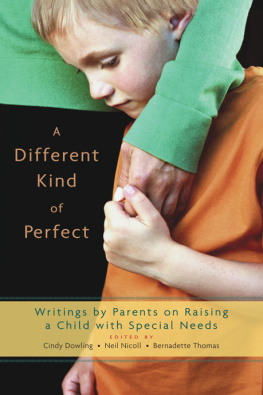

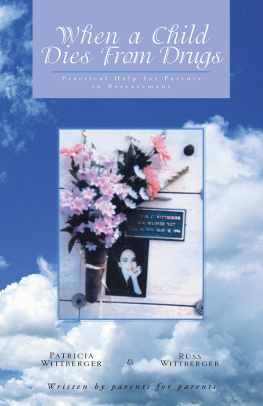
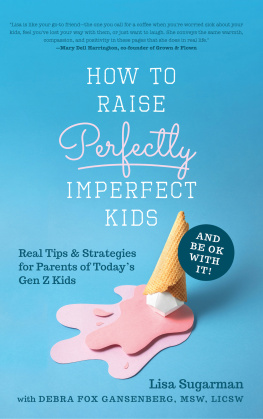
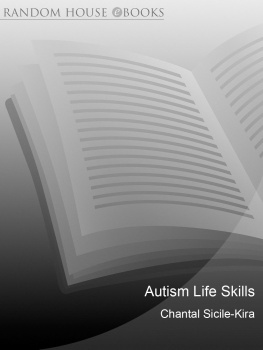

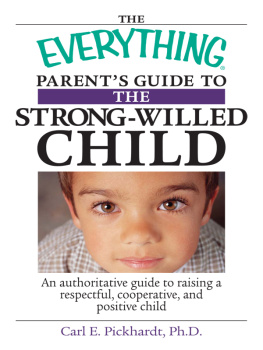
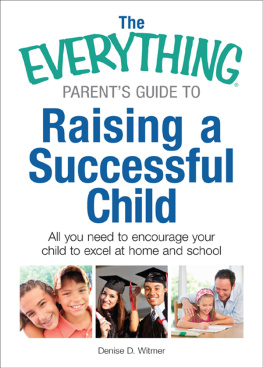
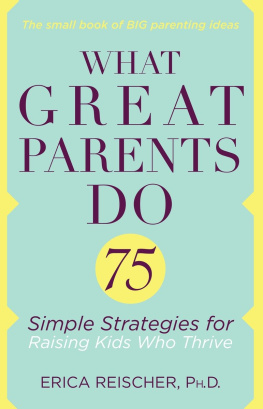


 Trumpeter
Trumpeter  Boston
Boston